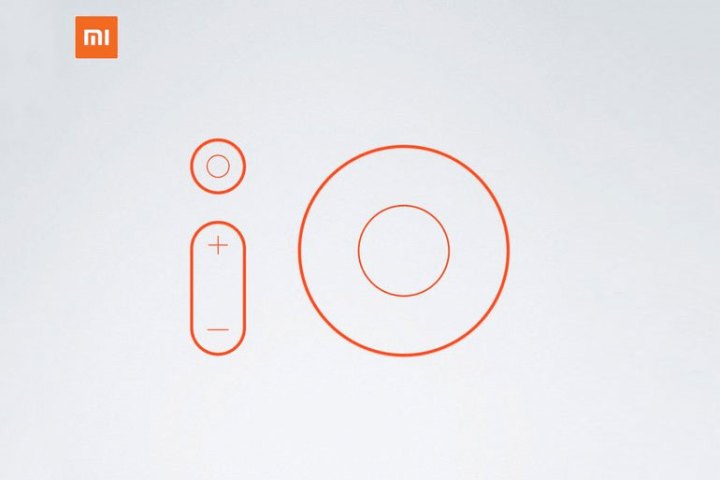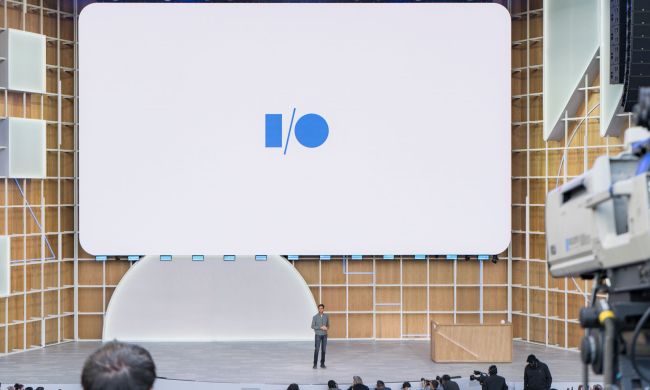
Updated on 05-19-2016 by Kyle Wiggers: Xiaomi unveiled the 4K Mi Box at Google’s developer conference, an Android TV set-top box with gaming features.
Perhaps more interesting than that news, though, were the two teaser images that accompanied it. The first: an orange-tinted abstract — a lowercase “i” and uppercase “O” — that looks somewhat like a rounded, rectangular television remote control next to a larger, puck-shaped base. The second: a series of symbols — arrows and two buttons, a circular “A” and “B” — that resemble combinations on gaming console controller.
Guess which super combo move we’ll be making at #io16 pic.twitter.com/eDVGNbz6vs
— Hugo Barra (@hbarra) May 17, 2016
That’s all Barra wrote, unfortunately, but it hints that what Xiaomi might reveal during I/O may lie in the firm’s overseas products portfolio. Judging by the teaser image’s remote-shaped “i” and nod to gaming consoles, an Android TV-powered streaming device with video game-capable silicon and accessories is more than likely in the cards, and it wouldn’t be without precedent — Xiaomi sells an array of set-top boxes and televisions in mainland China. Tellingly, they pack the sort of high-caliber hardware you’d expect to find in a flagship Android TV media streamer: the high-end Mi Box sports Miracast support, dual-band WiFi, and Dolby and DTS sound, for instance, while the Mi Box mini stuffs a quad-core processor and 1GB of RAM into a diminutive package the size of a standard AC adapter.
And although Xiaomi’s primarily an Asia-Pacific brand, for now — it finished the second quarter of 2015 with 15.9 percent of China’s smartphone market, the largest of any Chinese vendor — it’s made its global ambitions known. Xiaomi is committed to launching a U.S. version of its Mi.com store that will feature the company’s headphones and fitness trackers, and made its first appearance at Mobile World Congress in Barcelona in March.
“We’re accelerating our entry in a sense by bringing simpler products,” Barra said at a press briefing in San Francisco. “Hopefully, that’ll be the beginning of really having America experience the Xiaomi brand and the quality and craftsmanship of our products.”
Xiaomi has plenty of motivation to branch out. Although the $45 billion company sold more than 70 million phones last year, it missed its target by 10 million shipments, and with smartphone sales in China expected to grow more slowly than initially anticipated this year, Xiaomi has made aggressive pushes in wearables and other alternative product categories.
The set-top box market isn’t necessarily ripe for the picking — behemoths such as Amazon, Google, Apple, and Roku have long ago carved out their respective portions of the pie — but Xiaomi evidently sees it as an area of potential growth. With the kind of innovation for which the company’s become known, perhaps it’s right.



